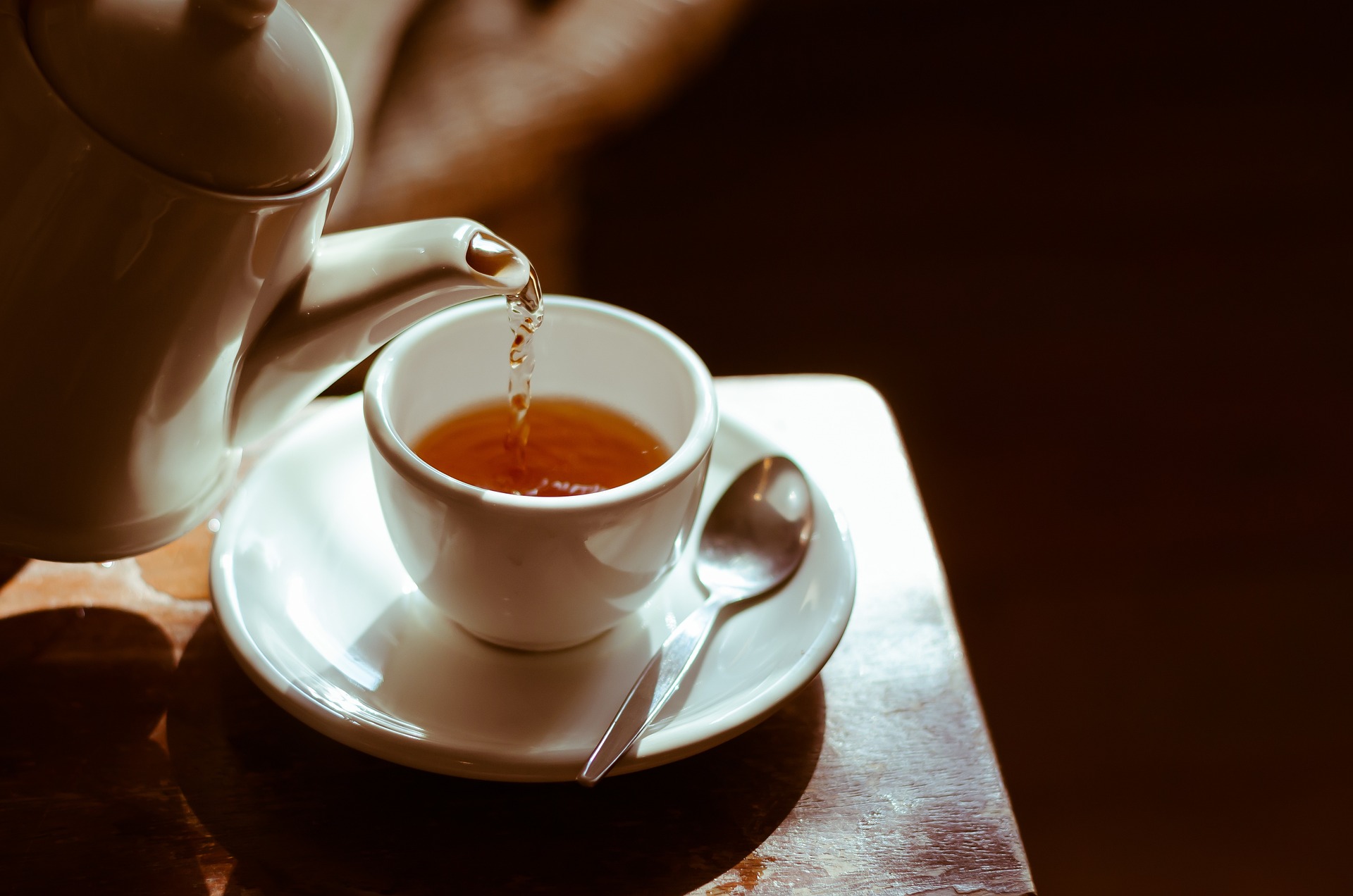People all over the world have been drinking tea for thousands of centuries, and for good reason.
Quite a few studies have shown that a variety of teas may boost your immune system, fight off inflammation, and even protect against heart disease, stroke, and cancer.
So, there seems to be a lot of evidence that regularly drinking tea can have a lasting impact on your wellbeing.
Therefore, let’s put the kettle on, because we will be sharing some of the biggest benefits a regular cup of tea (or a few) can have.

– Tea may reduce your risk of heart attack and stroke
A recent study found that those who drank one to three cups of green tea a day have a nearly 20 percent reduction in the risk of heart attack and a 35 percent reduction of suffering a stroke. Those who drank four or more cups of green tea daily had a 32 percent reduction in the risk of having a heart attack and also lower levels of the bad cholesterol (LDL).
– Tea may help battle cancer
Studies on this are currently mixed and research is still ongoing. But, if there is a strong family history of cancer and you want to make sure you do anything you can, increasing your tea consumption might help.
– Tea may lower odds of diabetes
People who drink tea tend to have a lesser risk of developing diabetes, however, it is not clear if tea should get the credit for these benefits or if tea drinkers generally lead a healthier lifestyle.
– Tea may lower blood pressure and cholesterol
It is possible that rooibos tea can improve these heart disease risk factors.
– Tea may reduce inflammation
Green tea contains polyphenols, which have anti-inflammatory and antioxidant properties.
– Tea may help soothe an upset stomach
Mint tea can help with nausea and stomach aches and pains.
– Tea may improve sleep and relaxation
Chamomile tea especially can provide these benefits.
– Tea may increase focus and alertness
Here, green tea scores more points with these brain-boosting gains.
– Tea may increase fat burning
If you look at the ingredients list for any fat burning supplement, chances are, green tea will be on there.
– Tea may protect the brain from aging
Green tea may not only improve brain function in the short term, it may also protect your brain as you age. Studies have shown that the catechin compounds in green tea may have protective effects on neurons in test tubes and animal models, possibly lowering the risk of dementia.

THE VARIOUS TEAS
– Black Tea
Black tea is made with fermented tea leaves and has the highest caffeine content. It usually forms the basis for flavored teas, alongside some instant teas. Studies have shown that black tea may protect lungs from damage caused by exposure to cigarette smoke. It may also reduce the risk of a stroke.
– Green Tea
Green tea is made with steamed tea leaves and has a high concentration of EGCG. It has been widely studied. Green tea’s antioxidants may interfere with the growth of colorectal, lung, pancreatic, bladder, stomach, and breast cancers, it may burn fat, reduce the risk of neurological disorders like Alzheimer’s and Parkinson’s diseases, prevent clogging of the arteries, improve cholesterol levels, counteract oxidative stress on the brain, and reduce the risk of a stroke.
– White Tea
White tea is unfermented and uncured. A study has shown that white tea has the most potent anticancer properties compared to more processed teas.
– Pu-erh Tea
Pu-erh tea is made from fermented and aged leaves. It is considered a black tea. One study on animals has shown that animals given pu-erh tea had less weight gain and reduced LDL cholesterol.
– Oolong Tea
Oolong tea – a study on animals has shown that those given antioxidants from oolong tea were found to have lower bad cholesterol levels.
– Herbal Tea
Herbal teas are made from herbs, fruits, seeds, or roots which are steeped in hot water. They have lower concentrations of antioxidants than black, green, white, and oolong teas.
Varieties of herbal tea include jasmine, mint, ginkgo biloba, chamomile, ginseng, rooibos (red tea), hibiscus, rosehip, and echinacea.
There has been limited research on the health benefits of herbal teas, but any claims that they ward off colds, help to shed weight, and bring on a good night’s sleep are largely unsupported.
CAFFEINE IN TEA
Caffeine stimulates your brain. You may want a boost of focus and alertness early in the day, however, too much caffeine can make you anxious and jittery. And drinking caffeine-laden drinks late in the day can lead to sleeping issues at night.
Black tea usually has the most caffeine and does contain about one-third to one-half as much caffeine as coffee. Green tea has less caffeine than black tea, and herbal teas do not contain caffeine.
ARE THERE NEGATIVE EFFECTS OF DRINKING TEA?
As with everything else, moderation is key when it comes to drinking tea. Consuming high amounts of tea could lead to kidney stones, since tea contains oxalate, which can bind to calcium to create kidney stones.
Further, the government does not regulate the herbs found in some types of tea. Also, herbs may trigger an allergic reaction, which might be dangerous and could potentially interact with medications you might be taking. Make sure to carefully read your ingredient label and check with your GP when in doubt!
Coming to a close…

NOW THAT WE HAVE EXTENSIVELY TALKED ABOUT THE BENEFITS DRINKING TEA MIGHT HAVE, HERE IS A SIMPLE TEA-TRICK THAT TAKES LESS THAN 10 SECONDS…
Yet it automatically burns off belly fat throughout your day…
While instantly boosting your health, energy and metabolism…
And it even whitens your teeth at the same time!
This is absolutely incredible:
